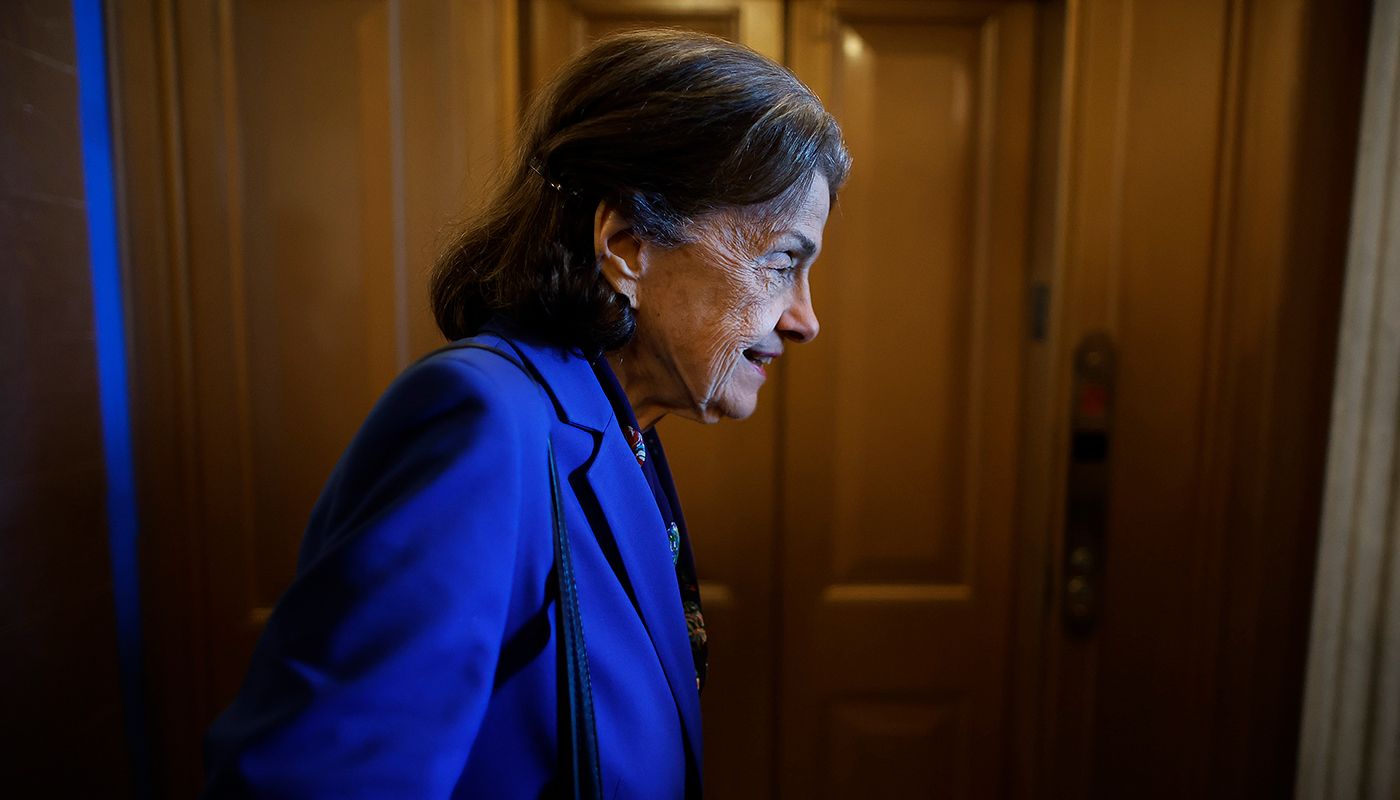Senator Dianne Feinstein, the first woman to represent California in the Senate and a onetime mayor of San Francisco who led the city through a tragic and tumultuous time, died Thursday night at age 90.
A family member confirmed Feinstein's death, and her Senate staff was informed Friday morning — after, according to the New York Times, a rumor of her death already had begun circulating in D.C. Reportedly, she had been suffering from encephalitis following her bout with shingles this past winter.
Feinstein was the oldest sitting senator, and her final months had been marred by a debilitating illness, growing public calls for her resignation, and a family fight made public over the handling of her late husband's estate.
Feinstein was born in 1933 in San Francisco to UCSF professor and surgeon Dr. Leon Goldman and Betty Rosenburg Goldman, both Russian immigrants. She attended Convent of the Sacred Heart High School and later Stanford, graduating in 1955. Her political career began when she served as an intern at the Coro Foundation, which teaches young people political leadership skills.
"My future plans center around public affairs in that I plan to run for political office on a local and possibly a national level," wrote a 21-year-old Feinstein on her Coro application, per the Chronicle.

She was later appointed to the California Women's Parole Board in 1960 by Jerry Brown's father, Governor Pat Brown. She was elected to the SF Board of Supervisors in 1969 and would later become its president, putting her first in the line of succession when Mayor George Moscone was assassinated along with Supervisor Harvey Milk in November 1978.
Feinstein had run for mayor unsuccessfully twice at that point, including in a runoff election against Moscone.
A fierce proponent of gun control, Feinstein never shied away from discussing the gun violence that led directly to her becoming mayor of San Francisco. Feinstein was the first to find Milk's body after the shooting, and it was her face on television that day telling reporters and the world that the mayor and Milk had been killed.
On more than one occasion she brought up this moment in the Senate when debating gun issues. The Chronicle recalls one of the first, when, in 1993, then-Senator Larry Craig of Idaho made the mistake of saying of Feinstein, "The gentlelady from California needs to become a little bit more familiar with firearms and their deadly characteristics."
"I am quite familiar with firearms," Feinstein replied. "I became mayor as a product of assassination. I found my assassinated colleague and put a finger through a bullet hole trying to get a pulse... Senator, I know something about what firearms can do."
Politically, Feinstein was always a "raging moderate," as one biographer put it, which didn't always endear her to San Francisco voters, or to California voters at large — though she had run virtually unopposed for her Senate seat for the last 25 years.
But as the Chronicle notes, serving as mayor during a highly fraught moment, following both the assassinations and the Jonestown massacre — which had happened just a week earlier — Feinstein projected calm and strength.
"Her style and her actions had a soothing effect,” said famed California Democratic leader John Burton in a 1987 interview with the Chronicle. "She helped bring the city together at a time when the people of the city wanted to be brought together. At that time in history, she uniquely fit the position of mayor."
In their obituary, the Times notes that Feinstein could be known for changing her mind in the Senate chamber. Though she voted in favor of the war in Iraq and backed Bush's detention and interrogation policies at Guantanamo Bay, she would later, as chair of the Senate Intelligence Committee in 2014, oversee a report on those policies that would cast Guantanamo in a very negative light.
"The major lesson of this report is that regardless of the pressures and the need to act, the intelligence community’s actions must always reflect who we are as a nation, and adhere to our laws and standards," Feinstein said at the time.
As longtime colleague and friend Willie Brown said of her, per the Times, "Dianne is almost unsuited to politics. She’s too candid, too direct, too incapable of game playing."
In a statement today, Governor Gavin Newsom said, "Dianne Feinstein was many things — a powerful, trailblazing U.S. senator; an early voice for gun control; a leader in times of tragedy and chaos. But to me, she was a dear friend, a lifelong mentor, and a role model not only for me, but to my wife and daughters for what a powerful, effective leader looks like."
Top image: San Francisco Mayor Dianne Feinstein stands in the middle of Steiner Street in 1981 looking tough to illustrate her campaign of "taking a stand" against crime in San Francisco. (Photo by © Roger Ressmeyer/CORBIS/VCG via Getty Images)

